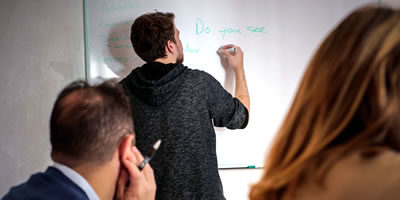Questions without auxiliary verbs

Look at these two questions: Question word Auxiliary Subject Verb Who do you love? Question word verb object Who loves you? The first question is a normal question and uses the form which we almost always use for a question: question word + auxiliary + subject + verb In the second question, the question word is the subject. When the […]
Read more






